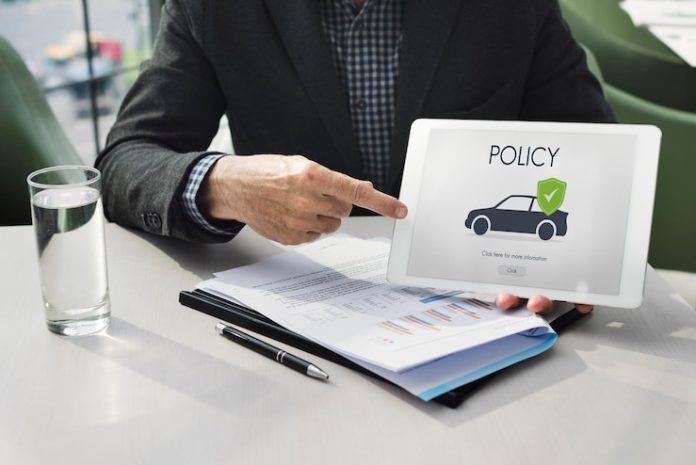When running a business that relies on vehicles—whether it’s for deliveries, transporting tools, or client visits Commercial Auto Insurance Coverage becomes a necessity, not a luxury. It’s designed to protect both your business and its vehicles from potential financial loss due to accidents, theft, liability claims, and more.
In this blog, we’ll break down what commercial auto insurance covers, who needs it, and how to choose the right policy for your business. If you use a vehicle for anything beyond commuting, this guide is for you.
What Is Commercial Auto Insurance Coverage?
Commercial Auto Insurance Coverage is a policy designed specifically for vehicles used for business purposes. Unlike personal auto insurance, commercial policies cover a broader range of risks, including higher liability limits and specific coverages tailored to the business environment.
This insurance is essential for companies that use vehicles for tasks such as:
- Deliveries
- Transporting goods or people
- Business-related travel
- Service calls (e.g., plumbers, electricians, caterers)
Why Your Business Needs It
Many business owners assume that personal auto insurance is enough to cover their vehicles. Unfortunately, personal policies typically exclude claims made while the vehicle is being used for business purposes. This could leave you financially vulnerable if you or an employee gets into an accident on the job.
With Commercial Auto Insurance Coverage, you get protection where personal insurance leaves off. It safeguards your company from lawsuits, medical costs, vehicle damage, and more.
What Does Commercial Auto Insurance Cover?
Coverage can vary by provider and policy, but most Commercial Auto Insurance Coverage includes:
1. Liability Coverage
This covers bodily injury and property damage caused to others if you’re at fault in an accident. It helps pay for medical expenses, legal fees, and repair costs.
2. Collision Coverage
Pays for damages to your business vehicle in the event of a collision with another vehicle or object, regardless of who is at fault.
3. Comprehensive Coverage
Protects against non-collision incidents such as theft, vandalism, fire, weather damage, or animal strikes.
4. Medical Payments/Personal Injury Protection (PIP)
Covers medical expenses for the driver and passengers in the business vehicle, no matter who was at fault.
5. Uninsured/Underinsured Motorist Coverage
Covers your expenses if you’re hit by a driver who has little or no insurance.
6. Hired and Non-Owned Auto Coverage
Provides liability protection for vehicles your business rents or for employee-owned vehicles used for work purposes.
Who Needs Commercial Auto Insurance Coverage?
You should strongly consider Commercial Auto Insurance Coverage if:
- Your business owns or leases vehicles
- You or your employees drive personal vehicles for business tasks
- You rent or borrow vehicles for business use
- Your business involves transporting goods, tools, or people
Industries that often require commercial auto insurance include:
- Construction and contracting
- Delivery and courier services
- Landscaping and maintenance
- Real estate and property management
- Catering and mobile food services
Even a sole proprietor using their personal car to deliver products or visit clients could benefit from this specialized insurance.
Determining the Right Coverage Amount
Getting adequate coverage is crucial. Too little, and you risk being underinsured in the event of a claim. Too much, and you might pay more than necessary.
When evaluating your coverage needs, consider:
- The type and number of vehicles in your fleet
- How the vehicles are used
- The value of your business assets (to determine liability limits)
- State insurance requirements
- Risk exposure (e.g., driving distance, frequency, and locations)
Working with an experienced insurance agent can help you tailor a policy to fit your business and budget.
Cost of Commercial Auto Insurance
Premiums for Commercial Auto Insurance Coverage vary based on several factors:
- Type of vehicle(s)
- Vehicle usage (mileage, cargo, distance)
- Driving history of all operators
- Type of business
- Coverage limits and deductibles
- Location of your business
On average, small businesses in the U.S. may pay between $1,200 to $2,500 annually per vehicle. Bundling commercial auto with other insurance policies (like general liability or a business owner’s policy) can sometimes reduce costs.
Common Mistakes to Avoid
When securing Commercial Auto Insurance Coverage, avoid these pitfalls:
- Using personal auto insurance for business purposes: This can lead to denied claims.
- Underestimating liability needs: Medical and legal expenses can escalate quickly.
- Not listing all drivers: Ensure everyone who operates the vehicle is covered.
- Ignoring state-specific regulations: Requirements vary by state and industry.
- Skipping policy reviews: As your business evolves, so do your insurance needs.
Tips to Lower Your Premium
To reduce the cost of Commercial Auto Insurance Coverage, consider:
- Increasing your deductible (if financially feasible)
- Installing GPS or telematics systems to monitor driver behavior
- Requiring defensive driving training for employees
- Regularly maintaining your vehicles
- Bundling policies with a single insurance provider
These actions can not only lower premiums but also reduce the risk of accidents and claims.
Final Thoughts
Commercial vehicles are an essential part of many businesses, and protecting them is just as important as protecting your physical office or digital data. With the right Commercial Auto Insurance Coverage, you gain peace of mind knowing that you, your employees, and your assets are protected on the road.
Investing in commercial auto insurance isn’t just about meeting legal requirements—it’s about securing the future of your business. Take the time to assess your needs, compare providers, and build a policy that truly covers your business’s unique driving risks.




